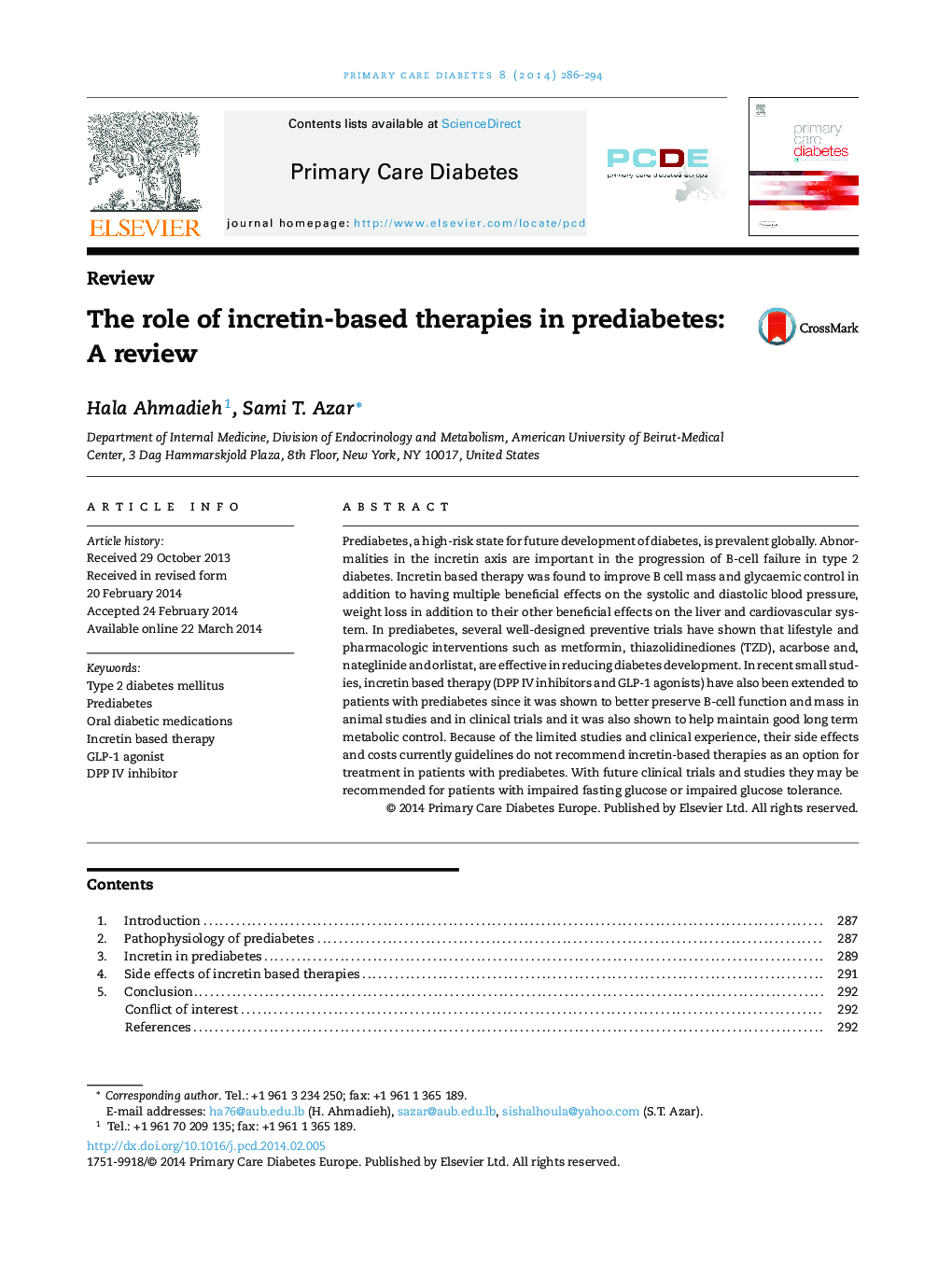| Article ID | Journal | Published Year | Pages | File Type |
|---|---|---|---|---|
| 2678913 | Primary Care Diabetes | 2014 | 9 Pages |
Prediabetes, a high-risk state for future development of diabetes, is prevalent globally. Abnormalities in the incretin axis are important in the progression of B-cell failure in type 2 diabetes. Incretin based therapy was found to improve B cell mass and glycaemic control in addition to having multiple beneficial effects on the systolic and diastolic blood pressure, weight loss in addition to their other beneficial effects on the liver and cardiovascular system. In prediabetes, several well-designed preventive trials have shown that lifestyle and pharmacologic interventions such as metformin, thiazolidinediones (TZD), acarbose and, nateglinide and orlistat, are effective in reducing diabetes development. In recent small studies, incretin based therapy (DPP IV inhibitors and GLP-1 agonists) have also been extended to patients with prediabetes since it was shown to better preserve B-cell function and mass in animal studies and in clinical trials and it was also shown to help maintain good long term metabolic control. Because of the limited studies and clinical experience, their side effects and costs currently guidelines do not recommend incretin-based therapies as an option for treatment in patients with prediabetes. With future clinical trials and studies they may be recommended for patients with impaired fasting glucose or impaired glucose tolerance.
